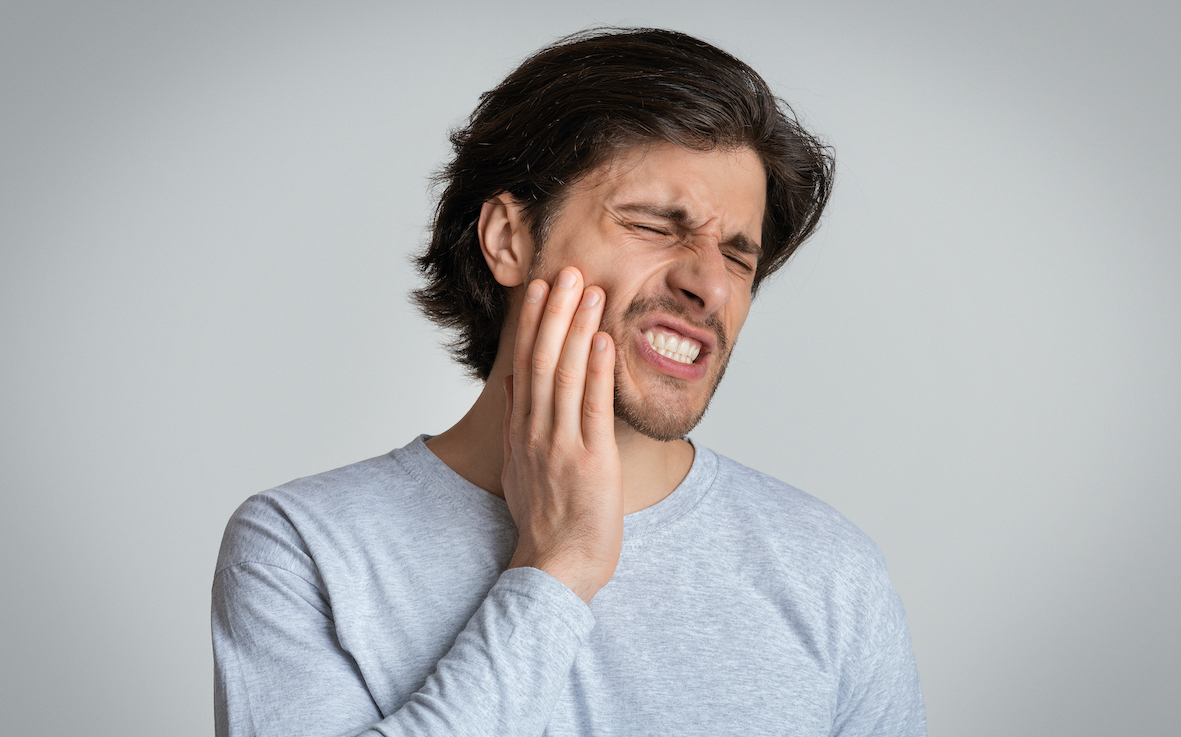Nothing is more irritating or potentially debilitating than tooth discomfort. Along with the vexing ache comes the looming prospect of a dental appointment requiring procaine, a root canal, and a three-day recuperation period. It's critical to evaluate what's causing your teeth to hurt. Tooth discomfort or toothache can be caused by a variety of factors other than a mere cavity. That is why it is critical to be sensitive and alert to the sort of pain, where it originates from, and when. To help you identify the issues and minimize unneeded concerns, let's look at a few reasons you could be experiencing tooth pain and how to treat them.
Tooth Cavity
This is the most common cause of tooth pain. It can happen when germs consume through a tooth's strong enamel outer layer. Bacteria are naturally present in the mouth. Nevertheless, too much glucose and other foodstuffs on your teeth can lead to an overabundance of harmful bacteria. Bacteria produce plaque, which sticks to the teeth. Some bacteria produce acid, which can cause cavities or holes. Tooth decay can appear on your teeth as little brown, white, or black patches.
Treatment
The Upper Hunt Club Dental Centre in Ottawa may repair a cavity or repair a weak spot in the tooth to alleviate aching discomfort. You may require:
• Teeth cleaning to remove plaque
• A filling to repair the cavity
• Antibiotics used to treat infection
Dental Abscess
When some or most of the pulp within the tooth dies, the tooth becomes abscessed. An abscess is formed when dead tissue forms a "pocket" of germs and pus. A tooth inflammation or infection can cause an abscess. If a cracked tooth is not treated promptly, it might develop into a dental abscess. This occurs when a crack or hole allows bacteria to enter the tooth.
Treatment
Antibiotics will be required to treat an abscess that is accompanied by inflammation and fever. They will also need to be treated for the dental issue that produced the abscess. In rare situations, an untreated abscess's bacterial infection can extend to the bloodstream and other parts of the body. As a result, if you suspect you have a tooth abscess, you should seek medical assistance immediately.
Weak Enamel
Teeth are made up of two layers: a tough outer layer known as enamel and a softer inside layer known as dentin. Dentin is composed of small tubules that link to nerves within the tooth. Weak or damaged tooth enamel uncovers these tubules, which allows cold and heat to get to the nerves. As a result, you may have dental sensitivity or discomfort. When an individual cleans their teeth or exposes their teeth to cold and hot meals or beverages, tooth sensitivity can occur. The discomfort might be abrupt and severe. Some patients, however, describe their dental sensitivity as persistent dull discomfort. Those who have several teeth with weak or damaged enamel may have widespread dental discomfort.
Treatment
A dentist may recommend using a desensitizing toothpaste if there are no symptoms of tooth decay. To assist protect the enamel, they might additionally administer a desensitizing agent or fluoride gel to the impacted teeth. If there are indications of decay, more treatment will be required.
Gum Infection
Gingivitis and periodontitis are the two phases of gum infection. Gingivitis is a kind of gum disease that is in its early stages. Gingivitis patients may have red, inflamed, or bleeding gums. Periodontitis is a severe form of gum infection in which the gums begin to tear away from your teeth. Periodontitis can develop if gingivitis is not addressed. Periodontitis can manifest as a variety of signs and symptoms, including:
• Bad breath
• Pain in the jaw or teeth
• Missing or loose teeth
• Dental sensitivity
• A loss in the bone beneath the gums
• A shift in the way somebody's teeth meet when they chew
Treatment
Gingivitis treatment includes maintaining proper oral hygiene and getting frequent dental cleanings. These remedies assist in minimizing the germs that cause gum infection.
Periodontitis, on the other hand, needs more thorough treatment. Based on the intensity of the condition, treatment solutions may include:
• Oral medication to manage gum inflammation
• Corrective gum surgery
• Thorough cleaning of teeth root surfaces beneath the gum line
Teeth Grinding
Bruxism is the medical word for teeth grinding. It is a behavior that frequently develops as a consequence of anxiety or stress. People who grind or clench their teeth usually do so while sleeping. Clenching the teeth wears away the enamel of the teeth. It may also cause tooth damage or breakage, resulting in extensive discomfort. Grinding teeth may also cause the following symptoms:
• Enlarged jaw muscles
• Ear or jaw pain, particularly in the morning
• Headaches
Treatment
Treating the underlying cause of tooth grinding aids in the relief of dental pain. Using a mouthguard while sleeping can assist children and adults avoid teeth grinding. It may also be beneficial to practice stress-reduction strategies or seek therapy from a qualified mental health expert.
Consequences of Ignoring Tooth Pain
• Rising dental treatment expenses
• Failure to identify other tooth problems
• Dangerous infections
• Teeth loss
If you experience throbbing tooth pain, visit the Upper Hunt Club Dental Centre in Ottawa. It might be the result of an infection. Early diagnosis can help you maintain your dental and body in good shape. Regular dental appointments aid in the prevention of significant tooth issues before they cause discomfort. Contact us today!













